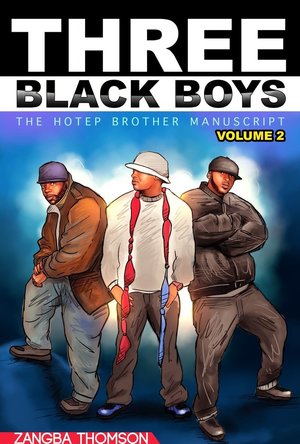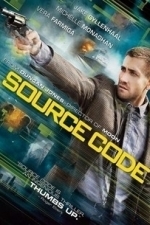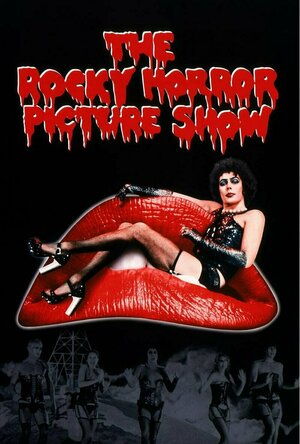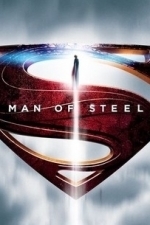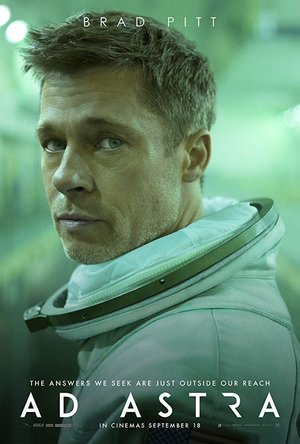Search
Search results
Night Reader Reviews (683 KP) rated Three Black Boys: The Hotep Brother Manuscript in Books
Apr 9, 2020
Honest Review for Free Copy of Book
Three Black Boys: The Hotep Brother Manuscript Volume 2 by Zangba Thomson is a wonderful continuation of the Three Black Boys series and I truly hope to see at least one more book in the future. It has elements that reminded me of the movie The Mummy Returns with its reanimated corpses.
Ego is back only this time he is calling himself Egor and has partnered up with Deadra whom he brought back from the dead, and her ‘pet’ Crow. The two of them along with Egor’s mindlessly enslaved Egomaniacs are have murdered the king of Monomotapa and are taking it over. Their goal is to stop the gold shipments to Planet Black, home of Father Time and Mother Nature. These gold shipments provide Planet Black with the necessary materials to protect it from asteroids and other dangers. Sadly a bunch of asteroids are headed straight for the planet and they do not have enough supplies to defend themselves.
With the looming threat of destruction Father Time and Mother Nature call on the Three Black Boys; Barnes, Demus, and Baker for help once again. The three boys are sent down to Monomotapa to discover what Egor and Deadra are up to and to put a stop to it before Planet Black is destroyed.
What I liked best about this book was the ending. This is not because the book was over (I for one wanted more) but because of the feelings, the book left me with. I was both happy and excited for the Three Black Boys as well as filled with hope that they can make better choices this time around. I can not say much else about what I liked without giving away some major spoilers. It was hard to choose something that I did not like about this book. If anything it was Barnes’ ring that felt off to me. The ring was supposed to give Barnes the ability to make any sound he wanted but it also gave him the ability to shoot laser beams out of it, though I am not sure why.
This book is ideal for adults and those mature enough to handle sex as it is not quite as family-friendly as the first volume. It is ideal for those who like dystopian fantasy with a bit of science fiction mixed in. I rate this book 3 out 4, just like volume one. It kept the style of the first book and had a nice flow to it that allowed me to read it in just two days. The symbolic theme of the destructive Ego carried over nicely as well, though I wish I could figure out what (if anything) Deadra symbolized. The idea of redemption and starting over after a troubled time was well depicted also. If it wasn’t for the ring’s unexplained power this book would have gotten a perfect score.
https://www.facebook.com/nightreaderreviews/
https://smashbomb.com/nightreader
https://nightreaderreviews.blogspot.com/
Ego is back only this time he is calling himself Egor and has partnered up with Deadra whom he brought back from the dead, and her ‘pet’ Crow. The two of them along with Egor’s mindlessly enslaved Egomaniacs are have murdered the king of Monomotapa and are taking it over. Their goal is to stop the gold shipments to Planet Black, home of Father Time and Mother Nature. These gold shipments provide Planet Black with the necessary materials to protect it from asteroids and other dangers. Sadly a bunch of asteroids are headed straight for the planet and they do not have enough supplies to defend themselves.
With the looming threat of destruction Father Time and Mother Nature call on the Three Black Boys; Barnes, Demus, and Baker for help once again. The three boys are sent down to Monomotapa to discover what Egor and Deadra are up to and to put a stop to it before Planet Black is destroyed.
What I liked best about this book was the ending. This is not because the book was over (I for one wanted more) but because of the feelings, the book left me with. I was both happy and excited for the Three Black Boys as well as filled with hope that they can make better choices this time around. I can not say much else about what I liked without giving away some major spoilers. It was hard to choose something that I did not like about this book. If anything it was Barnes’ ring that felt off to me. The ring was supposed to give Barnes the ability to make any sound he wanted but it also gave him the ability to shoot laser beams out of it, though I am not sure why.
This book is ideal for adults and those mature enough to handle sex as it is not quite as family-friendly as the first volume. It is ideal for those who like dystopian fantasy with a bit of science fiction mixed in. I rate this book 3 out 4, just like volume one. It kept the style of the first book and had a nice flow to it that allowed me to read it in just two days. The symbolic theme of the destructive Ego carried over nicely as well, though I wish I could figure out what (if anything) Deadra symbolized. The idea of redemption and starting over after a troubled time was well depicted also. If it wasn’t for the ring’s unexplained power this book would have gotten a perfect score.
https://www.facebook.com/nightreaderreviews/
https://smashbomb.com/nightreader
https://nightreaderreviews.blogspot.com/
Gareth von Kallenbach (980 KP) rated Source Code (2011) in Movies
Aug 7, 2019
Following upon his breakout success with the film Moon director Duncan Jones has returned with Source Code and has proven that he is not a one-hit wonder but also a talent on the rise.
The film stars Jake Gyllenhaal as Colter Stevens who, after waking up on a train, finds himself disoriented and unable to identify his travel companion, the attractive Christina Warren (Michelle Monaghan), who sits across from him eagerly discussing things they appear to have spoken about previously.
Taking a quick survey of his surroundings, Colter finds out that he is on a train heading to Chicago and that he cannot explain how he ended up where he currently is. Colter is not given much time to ponder his situation as the train is suddenly rocked by a massive explosion and he finds himself engulfed in a wall of flame. Shortly thereafter Colter awakens and finds himself upside down and strapped into what appears to be a cockpit of some sort.
A voice soon fills the cockpit, followed by the face of the woman he can’t identify on a video monitor. Unable to ascertain what is going on, a frantic Colter only recalls that he was a helicopter pilot on mission in Afghanistan. The mystery woman (Vera Farmiga) tells him that he is now part of a top-secret project that is attempting to unravel the mystery behind the bombing of the train.
Before he can ask too many questions, Colter once again finds himself back on the train with Christina and the same sequence of events occur before the train is engulfed by devastating fireball. When he once again awakens in his cockpit, Colter learns that the project he’s involved with can send him back in time 8 minutes into the body of someone on the train. He will be sent back time and time again to relive those final 8 min. in an effort to determine who is responsible for the bombing.
Despite his protests, Colter relives the events each time looking for new clues and each time ending up engulfed in the fireball and awakening in his cockpit. Eventually after numerous trips to the past Colter becomes obsessed with not only getting to the bottom of the mystery but with saving Christina to whom he is becoming attached through their numerous 8 minute interactions. Colter is also desperate to determine his exact situation as he has no memory of how he ended up in the program and finds himself not only trying to solve the mystery of the bombing, save Christina, but also fill in the gaps in his memory.
What follows is a fast-paced, character-driven adventure film that relies on the interaction’s between the two leads rather than special effects to carry the film. Gyllenhaal and Monaghan have good chemistry with each other and the film has some nice twists and turns that will keep the audience engrossed even if the concepts of time travel and temporal mechanics escape them.
Jones keeps the film moving at a brisk pace and it does not drag or overstay its welcome. Like Moon, Jones has based the film around a leading man who is facing isolation and questioning his mental state. With what could’ve been a dumbed-down action film, Jones has exceeded expectations and produced a smart and innovative action thriller with a touch of science fiction and romance thrown in, a winning combination that makes for a very enjoyable film.
The film stars Jake Gyllenhaal as Colter Stevens who, after waking up on a train, finds himself disoriented and unable to identify his travel companion, the attractive Christina Warren (Michelle Monaghan), who sits across from him eagerly discussing things they appear to have spoken about previously.
Taking a quick survey of his surroundings, Colter finds out that he is on a train heading to Chicago and that he cannot explain how he ended up where he currently is. Colter is not given much time to ponder his situation as the train is suddenly rocked by a massive explosion and he finds himself engulfed in a wall of flame. Shortly thereafter Colter awakens and finds himself upside down and strapped into what appears to be a cockpit of some sort.
A voice soon fills the cockpit, followed by the face of the woman he can’t identify on a video monitor. Unable to ascertain what is going on, a frantic Colter only recalls that he was a helicopter pilot on mission in Afghanistan. The mystery woman (Vera Farmiga) tells him that he is now part of a top-secret project that is attempting to unravel the mystery behind the bombing of the train.
Before he can ask too many questions, Colter once again finds himself back on the train with Christina and the same sequence of events occur before the train is engulfed by devastating fireball. When he once again awakens in his cockpit, Colter learns that the project he’s involved with can send him back in time 8 minutes into the body of someone on the train. He will be sent back time and time again to relive those final 8 min. in an effort to determine who is responsible for the bombing.
Despite his protests, Colter relives the events each time looking for new clues and each time ending up engulfed in the fireball and awakening in his cockpit. Eventually after numerous trips to the past Colter becomes obsessed with not only getting to the bottom of the mystery but with saving Christina to whom he is becoming attached through their numerous 8 minute interactions. Colter is also desperate to determine his exact situation as he has no memory of how he ended up in the program and finds himself not only trying to solve the mystery of the bombing, save Christina, but also fill in the gaps in his memory.
What follows is a fast-paced, character-driven adventure film that relies on the interaction’s between the two leads rather than special effects to carry the film. Gyllenhaal and Monaghan have good chemistry with each other and the film has some nice twists and turns that will keep the audience engrossed even if the concepts of time travel and temporal mechanics escape them.
Jones keeps the film moving at a brisk pace and it does not drag or overstay its welcome. Like Moon, Jones has based the film around a leading man who is facing isolation and questioning his mental state. With what could’ve been a dumbed-down action film, Jones has exceeded expectations and produced a smart and innovative action thriller with a touch of science fiction and romance thrown in, a winning combination that makes for a very enjoyable film.

Read the best books online
Book and Shopping
App
• Read! - a huge library in Estonian, English, Lithuanian, Latvian, Russian and other languages. ...
Sarah (7800 KP) rated The Rocky Horror Picture Show (1975) in Movies
Nov 25, 2020
Gloriously kitsch
Film #4 on the 100 Movies Bucket List: The Rocky Horror Picture Show
The Rocky Horror Picture Show is a bonafide cult classic and I doubt there is anyone who would disagree with this. It flopped on first release at the cinema but soon after gained a massive cult following and became a hugely interactive musical experience. For me, I became part of this cult following at university and have attended a fair few parties and shows over the years (in fancy dress of course). However it’s been quite some time since I watched this and seeing it again now makes for a rather interesting watch.
The Rocky Horror Picture Show is a 1975 musical directed by Jim Sharman, spanning a multitude of genres. It follows newly engaged (and rather wholesome) couple Brad (Barry Bostwick) and Janet (Susan Sarandon) as a flat tyre leaves them stranded and they’re left to seek shelter in a nearby castle owned by Dr Frank-N-Furter (Tim Curry).
This film is undoubtedly bats**t crazy. The plot is absolutely bonkers – a group of aliens from the planet Transexual led by a mad scientist in his quest to make the perfect man. It spans so many genres from comic horror to glam-rock musical and everything in between. It’s aim to spoof old school science fiction films is spot on, and there isn’t many films that can pull off cannibalism, murder and erotic sexual experimentation in the same 2 hour run time.
Admittedly there are some aspects of the plot that haven’t quite stood the test of time. 45 years ago the freedom exhibited around gender and sexuality was unlike anything anyone had ever seen and is still a rather wonderful thing to watch. However, there are other sides to this (such as lack of consent) which have become more apparent as society evolves and maybe aren’t quite acceptable now as they were back then. Fortunately this doesn’t spoil the overall feel of the film and it’s still as camp and cheesy and kitsch as it ever was.
One of the reasons for this films success is Richard O Brien’s script and music, and his performance as Riff Raff is pretty creepy and fun too. It’s clever and smart, and the music is top notch. The songs are some of the most catchy I’ve ever heard and they make you forget how crazy the plot is as soon as the music starts. From the legendary Time Warp to the wonderful Meat Loaf cameo on Hot Patootie, to the incredibly moving and inspirational Don’t Dream It, Be It, the songs are hugely memorable.
And then you have Tim Curry as Frank-N-Furter, in an absolute standout performance. He is perfect in Frank (I’ve yet to see anyone do it better) and it’s probably the best role he’s ever had. He looks like he’s having so much fun and steals every scene, you can’t take your eyes off him and that’s not just because he’s in stockings and suspenders. He makes you feel fascinated by Frank, disgusted and then ultimately sorry for him and this is no mean feat. No disrespect to the rest of the cast, but when Curry isn’t on screen the film does suffer ever so slightly.
The Rocky Horror Picture Show is a wacky, campy riot of a musical with a message that is heartwarming and inclusive. It may have aged a little over the years and certain topics don’t scrub up quite as well, but it’s still a hugely entertaining and unique musical experience.
The Rocky Horror Picture Show is a bonafide cult classic and I doubt there is anyone who would disagree with this. It flopped on first release at the cinema but soon after gained a massive cult following and became a hugely interactive musical experience. For me, I became part of this cult following at university and have attended a fair few parties and shows over the years (in fancy dress of course). However it’s been quite some time since I watched this and seeing it again now makes for a rather interesting watch.
The Rocky Horror Picture Show is a 1975 musical directed by Jim Sharman, spanning a multitude of genres. It follows newly engaged (and rather wholesome) couple Brad (Barry Bostwick) and Janet (Susan Sarandon) as a flat tyre leaves them stranded and they’re left to seek shelter in a nearby castle owned by Dr Frank-N-Furter (Tim Curry).
This film is undoubtedly bats**t crazy. The plot is absolutely bonkers – a group of aliens from the planet Transexual led by a mad scientist in his quest to make the perfect man. It spans so many genres from comic horror to glam-rock musical and everything in between. It’s aim to spoof old school science fiction films is spot on, and there isn’t many films that can pull off cannibalism, murder and erotic sexual experimentation in the same 2 hour run time.
Admittedly there are some aspects of the plot that haven’t quite stood the test of time. 45 years ago the freedom exhibited around gender and sexuality was unlike anything anyone had ever seen and is still a rather wonderful thing to watch. However, there are other sides to this (such as lack of consent) which have become more apparent as society evolves and maybe aren’t quite acceptable now as they were back then. Fortunately this doesn’t spoil the overall feel of the film and it’s still as camp and cheesy and kitsch as it ever was.
One of the reasons for this films success is Richard O Brien’s script and music, and his performance as Riff Raff is pretty creepy and fun too. It’s clever and smart, and the music is top notch. The songs are some of the most catchy I’ve ever heard and they make you forget how crazy the plot is as soon as the music starts. From the legendary Time Warp to the wonderful Meat Loaf cameo on Hot Patootie, to the incredibly moving and inspirational Don’t Dream It, Be It, the songs are hugely memorable.
And then you have Tim Curry as Frank-N-Furter, in an absolute standout performance. He is perfect in Frank (I’ve yet to see anyone do it better) and it’s probably the best role he’s ever had. He looks like he’s having so much fun and steals every scene, you can’t take your eyes off him and that’s not just because he’s in stockings and suspenders. He makes you feel fascinated by Frank, disgusted and then ultimately sorry for him and this is no mean feat. No disrespect to the rest of the cast, but when Curry isn’t on screen the film does suffer ever so slightly.
The Rocky Horror Picture Show is a wacky, campy riot of a musical with a message that is heartwarming and inclusive. It may have aged a little over the years and certain topics don’t scrub up quite as well, but it’s still a hugely entertaining and unique musical experience.
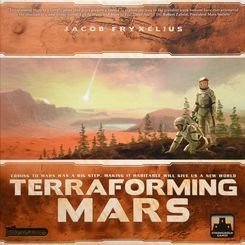
Terraforming Mars
Tabletop Game
In the 2400s, mankind begins to terraform the planet Mars. Giant corporations, sponsored by the...
Boardgame TerraformThis MeeplesChoice
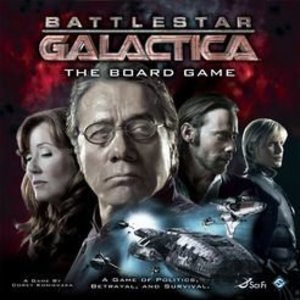
Battlestar Galactica: The Board Game
Tabletop Game
Battlestar Galactica: The Board Game is an exciting game of mistrust, intrigue, and the struggle for...
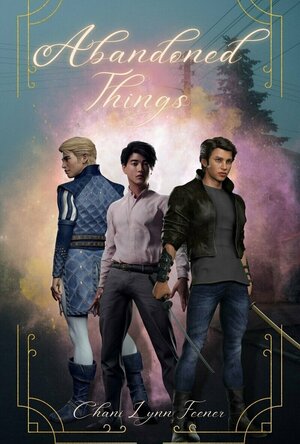
Abandoned Things
Book
Frankie is a fifth-year college student with a secret. He's the writer and creator of the popular...
MM Science Fiction Fantasy Enemies to Lovers Romance
Ryan Hill (152 KP) rated Man of Steel (2013) in Movies
May 21, 2019
"It's not an s on my world it means hope"
Superman's origin has been retold in comics more than any other character. But how do you reboot such a beloved icon in film form without making his origin feel unnecessary to go through again. By handing him over to the masters of all reboots. While developing the story for The Dark Knight Rises, Director Christopher Nolan and writer David S. Goyer developed a new way to bring the man of steel to life. The duo previously saved Batman and made him a cinematic legend again and now they plan to save Superman from uneven sequels and a stale image. And who did they invite to lead this revival? None other than director Zack Snyder, a visual wizard with a lackluster reputation in storytelling thanks to his remake of Dawn of the Dead, 300, Watchmen and Sucker Punch. Now despite some filmmaking stumbles along the way, the trio make for a surprisingly great combination and deliver the modern Superman film we have waited 75 years for with Man of Steel. We are given both Superman and a Clark Kent who doesn't know his place in the world and is coming to terms with how the public perceives him.
As with all Superman mythology the story begins on Krypton, the planet that's hundreds of thousands of civilized years ahead of Earth. The whole planet is science fiction nirvana. The zooming spaceships, winged beast and advanced technology crafted from liquid metal. For once we experience the entire planet, not just a couple rooms made out of cheap crystal. There's a system of ways things work that has never been fleshed out on screen before. The government, the science and it's culture. At the head of the planet's scientific research is Jor-El (Russell Crowe) and he has discovered proof that may lead to the planet's destruction. But unfortunately his pleas towards his leaders are ignored due to the ongoing civil war with Jor-El's old friend General Zod (Michael Shannon). There's more history to the Jor-El/ Zod dynamic this time around which just enriches their conflict. There are millions of stories concerning Marlon Brando's $3 million dollar slumming in the '78 film. He intentionally mispronounced Krypton, made outrageous production demands and in the end that put him on the cutting room floor for it's sequel. Crowe see's Brando's paycheck acting and raises it with a performance full of gravitas. When conflicts begin to soften and punishments are served, more and more evidence begin to support Jor-El's claims of Krypton's destruction and with time and options exhausted, his final resort is to save his only son Kal-El. Still an infant, Jor-El concludes the only way his son will ever have any chance of life is to be sent to a more primitive alien planet and have a significant advantage over it's species. So he sends him to Earth, where it's sun will grant his body incredible abilities.
Jump 33 years later as the adult Kal-El, now under the name Clark Kent (Henry Cavil) is wandering the world trying to discover his place in it. There are multiple flashbacks to Clark's childhood with his adoptive parents Jonathan and Martha Kent (Kevin Costner and Diane Lane). Costner gives a heartfelt performance full of warmth as the father concerned with his son's well-being if the world rejects him. If someone with Clark's abilities were to be exposed to the public, it would be one of the biggest moments in human history. His existence alone would make everyone question religion, science and everything they had ever thought about the universe. And Lane strikes quiet, charming notes as the more understanding mother. Throughout his entire life Clark had been using his powers in secret, from saving derrick workers from fires to fighting a massive hurricane in his hometown of Smallville. If there's one word to describe Cavil's performance it's "Modern". He is not the "Aw shucks" farm boy nor is he the angst filled mess many feared he was going to be. There's still a humbleness, a sweetness and a sense of forthrightness to him. And of course he is a perfect physical representation of the character as well. As much as Christopher Reeve's performance still means to audiences today, it has reached a point where it has unfairly overshadowed the character. The idealism of Reeve's Superman isn't relevant today, at least not in the purest sense of the word. Cavil's Superman understands the difficulty of what his powers mean for the world and understands there really isn't anything to smile about.
Of course you can't tell a Superman story without his supporting players at the Daily Planet. Perry White (Laurence Fishburne, in an inspired piece of casting) knows the only way a newspaper could ever have hope at functioning these days is if they had major exclusives to the first alien ever revealed to the masses. Enter Lois Lane (Amy Adams, full of spunk) who has been chasing Clark's story all across the globe for several years. Lois has always been a tricky character to adapt, seeing how it's difficult for audiences to like her if you get it wrong. Can somebody who can't see Superman past a pair of thick glasses really be a Pulitzer Prize winning journalist? Thankfully, this Lois isn't as Shrill as Margot Kidder or as bland as Kate Bosworth in previous versions. Snyder and Adams treat Lois as the talented, dedicated journalist we know she really is by making her active at her profession and not having to prove anything just because she's a woman. The only thing she has to prove are her credentials, which are just as impressive as everything else about her. While some might be disappointed by the lack of romance between the couple, but to be fair, this isn't a Lois and Clark story, it's the story of Clark discovering his place in the world. But the spark between the two of them is certainly present when they first meet. For Clark to go from a lifetime of loneliness to have somebody instantly discover everything about you and admiring all of it is a luxury he has never had before.
Clark couldn't have picked a better time to make his presence known to the world, with General Zod returning to finish what he started. The cinematic Superman villains have created a history of scenery chewing performances dating back to Gene Hackman's Lex Luthor. Terrence Stamp was the first actor to portray Zod on film in Superman ll, but despite some memorable dialogue ("Kneel before Zod!") he was still essentially just a typical mustache twirling maniac. Zod this time around is nothing but bold tactics and is fully fledged to preserving his lost race, no matter what the cost. Michael Shannon is nothing but pure, demented megalomania. The only disadvantage Zod possesses though is that his body isn't used to the yellow son and must try and control all his new powers at once. Clark on the other hand, has had a lifetime to perfect his gifts.
Visual aesthetics have leaped skyscrapers since the Donner era. Snyder takes that technological advantage and gives fans what they have dreamed of for years. To put it bluntly, to see Supes punch somebody- really fucking hard! Snyder understands all of Superman's abilities and test them on the grandest scale imaginable. And he does so without resorting to his trademark slow-mo sequences and putting macho fantasies on display. In terms of action alone this is the first time the character has been given justice. Even as bombastic or repetitive it occasionally becomes, it can easily be forgiven because the character has been so overdue for it. It is unfortunate that cinematographer Amir Morki captures it all in a rather unpolished handheld style. But at least Snyder's chaotic direction finally seems to have a sense of aim and isn't relying on green screen to tell his stories. It may have to do with the influence of Nolan producing, but the end result is gloriously flashy, gritty and contains a well needed sense of gravity. And while Man of Steel never reaches the same dizzying heights as Nolan's Dark Knight trilogy, it still preserves and reintroduces it's legendary character in the same respect.
Snyder, Nolan and Goyer certainly have stayed true to the modern lore of Superman by adapting elements of his classic comic stories Birthright, Man for All Seasons, New Krypton and Earth One, and do so without damaging or over-explaining any of it. But if anything it's a science fiction story first then a comic book adaptation, in the vein of such first contact films as the original Day the Earth Stood Still and War of the Worlds. Man of Steel reminds us that Superman is not human, but still represents the best that humanity has to offer. It's the story of fathers, understanding your roots and taking hold of your destiny. It's always been that way for Superman, ever since he was created by young Jewish immigrants Jerry Siegel and Joe Shuster.
While the original theme music by John Williams is still the granddaddy of all superhero cinematic anthems, Hans Zimmer still creates a thunderous pulse of a score. Atmospheric, gentle and adrenaline charged, Zimmer accompanies Clark's drifting, the concerns of his parents and Superman's clashes with one perfect note after another.
Christopher Reeve for many people is still going to be the definitive Superman, but that's too be expected. For so long that's all we've had to go on as far as a great man of steel. There are multiple generations separating Reeve and Cavil and multiple generations separating their audiences. Will everyone accept Cavil as this modern Superman that understands today's humanity? As with Batman Begins, the conclusion doesn't technically set itself up for a sequel but it establishes an iconic part of it's universe in a nice wink that makes you want to see more of it. It isn't quite perfect, but this universe certainly deserved to grow. Because unlike what occurred in 2006, this time Superman really has returned.
As with all Superman mythology the story begins on Krypton, the planet that's hundreds of thousands of civilized years ahead of Earth. The whole planet is science fiction nirvana. The zooming spaceships, winged beast and advanced technology crafted from liquid metal. For once we experience the entire planet, not just a couple rooms made out of cheap crystal. There's a system of ways things work that has never been fleshed out on screen before. The government, the science and it's culture. At the head of the planet's scientific research is Jor-El (Russell Crowe) and he has discovered proof that may lead to the planet's destruction. But unfortunately his pleas towards his leaders are ignored due to the ongoing civil war with Jor-El's old friend General Zod (Michael Shannon). There's more history to the Jor-El/ Zod dynamic this time around which just enriches their conflict. There are millions of stories concerning Marlon Brando's $3 million dollar slumming in the '78 film. He intentionally mispronounced Krypton, made outrageous production demands and in the end that put him on the cutting room floor for it's sequel. Crowe see's Brando's paycheck acting and raises it with a performance full of gravitas. When conflicts begin to soften and punishments are served, more and more evidence begin to support Jor-El's claims of Krypton's destruction and with time and options exhausted, his final resort is to save his only son Kal-El. Still an infant, Jor-El concludes the only way his son will ever have any chance of life is to be sent to a more primitive alien planet and have a significant advantage over it's species. So he sends him to Earth, where it's sun will grant his body incredible abilities.
Jump 33 years later as the adult Kal-El, now under the name Clark Kent (Henry Cavil) is wandering the world trying to discover his place in it. There are multiple flashbacks to Clark's childhood with his adoptive parents Jonathan and Martha Kent (Kevin Costner and Diane Lane). Costner gives a heartfelt performance full of warmth as the father concerned with his son's well-being if the world rejects him. If someone with Clark's abilities were to be exposed to the public, it would be one of the biggest moments in human history. His existence alone would make everyone question religion, science and everything they had ever thought about the universe. And Lane strikes quiet, charming notes as the more understanding mother. Throughout his entire life Clark had been using his powers in secret, from saving derrick workers from fires to fighting a massive hurricane in his hometown of Smallville. If there's one word to describe Cavil's performance it's "Modern". He is not the "Aw shucks" farm boy nor is he the angst filled mess many feared he was going to be. There's still a humbleness, a sweetness and a sense of forthrightness to him. And of course he is a perfect physical representation of the character as well. As much as Christopher Reeve's performance still means to audiences today, it has reached a point where it has unfairly overshadowed the character. The idealism of Reeve's Superman isn't relevant today, at least not in the purest sense of the word. Cavil's Superman understands the difficulty of what his powers mean for the world and understands there really isn't anything to smile about.
Of course you can't tell a Superman story without his supporting players at the Daily Planet. Perry White (Laurence Fishburne, in an inspired piece of casting) knows the only way a newspaper could ever have hope at functioning these days is if they had major exclusives to the first alien ever revealed to the masses. Enter Lois Lane (Amy Adams, full of spunk) who has been chasing Clark's story all across the globe for several years. Lois has always been a tricky character to adapt, seeing how it's difficult for audiences to like her if you get it wrong. Can somebody who can't see Superman past a pair of thick glasses really be a Pulitzer Prize winning journalist? Thankfully, this Lois isn't as Shrill as Margot Kidder or as bland as Kate Bosworth in previous versions. Snyder and Adams treat Lois as the talented, dedicated journalist we know she really is by making her active at her profession and not having to prove anything just because she's a woman. The only thing she has to prove are her credentials, which are just as impressive as everything else about her. While some might be disappointed by the lack of romance between the couple, but to be fair, this isn't a Lois and Clark story, it's the story of Clark discovering his place in the world. But the spark between the two of them is certainly present when they first meet. For Clark to go from a lifetime of loneliness to have somebody instantly discover everything about you and admiring all of it is a luxury he has never had before.
Clark couldn't have picked a better time to make his presence known to the world, with General Zod returning to finish what he started. The cinematic Superman villains have created a history of scenery chewing performances dating back to Gene Hackman's Lex Luthor. Terrence Stamp was the first actor to portray Zod on film in Superman ll, but despite some memorable dialogue ("Kneel before Zod!") he was still essentially just a typical mustache twirling maniac. Zod this time around is nothing but bold tactics and is fully fledged to preserving his lost race, no matter what the cost. Michael Shannon is nothing but pure, demented megalomania. The only disadvantage Zod possesses though is that his body isn't used to the yellow son and must try and control all his new powers at once. Clark on the other hand, has had a lifetime to perfect his gifts.
Visual aesthetics have leaped skyscrapers since the Donner era. Snyder takes that technological advantage and gives fans what they have dreamed of for years. To put it bluntly, to see Supes punch somebody- really fucking hard! Snyder understands all of Superman's abilities and test them on the grandest scale imaginable. And he does so without resorting to his trademark slow-mo sequences and putting macho fantasies on display. In terms of action alone this is the first time the character has been given justice. Even as bombastic or repetitive it occasionally becomes, it can easily be forgiven because the character has been so overdue for it. It is unfortunate that cinematographer Amir Morki captures it all in a rather unpolished handheld style. But at least Snyder's chaotic direction finally seems to have a sense of aim and isn't relying on green screen to tell his stories. It may have to do with the influence of Nolan producing, but the end result is gloriously flashy, gritty and contains a well needed sense of gravity. And while Man of Steel never reaches the same dizzying heights as Nolan's Dark Knight trilogy, it still preserves and reintroduces it's legendary character in the same respect.
Snyder, Nolan and Goyer certainly have stayed true to the modern lore of Superman by adapting elements of his classic comic stories Birthright, Man for All Seasons, New Krypton and Earth One, and do so without damaging or over-explaining any of it. But if anything it's a science fiction story first then a comic book adaptation, in the vein of such first contact films as the original Day the Earth Stood Still and War of the Worlds. Man of Steel reminds us that Superman is not human, but still represents the best that humanity has to offer. It's the story of fathers, understanding your roots and taking hold of your destiny. It's always been that way for Superman, ever since he was created by young Jewish immigrants Jerry Siegel and Joe Shuster.
While the original theme music by John Williams is still the granddaddy of all superhero cinematic anthems, Hans Zimmer still creates a thunderous pulse of a score. Atmospheric, gentle and adrenaline charged, Zimmer accompanies Clark's drifting, the concerns of his parents and Superman's clashes with one perfect note after another.
Christopher Reeve for many people is still going to be the definitive Superman, but that's too be expected. For so long that's all we've had to go on as far as a great man of steel. There are multiple generations separating Reeve and Cavil and multiple generations separating their audiences. Will everyone accept Cavil as this modern Superman that understands today's humanity? As with Batman Begins, the conclusion doesn't technically set itself up for a sequel but it establishes an iconic part of it's universe in a nice wink that makes you want to see more of it. It isn't quite perfect, but this universe certainly deserved to grow. Because unlike what occurred in 2006, this time Superman really has returned.
Bob Mann (459 KP) rated Ad Astra (2019) in Movies
Sep 28, 2021
Impressive visuals, but rather disappointing as an overall package.
Like father, like son?
I really love sci-fi films with high ambitions. “Psychological” sci-fi like “Solaris” for example. And “Arrival” topped my movie list for 2016. In similar vein, “Ad Astra” is also a movie concerning attempted contact with alien life. So I had high hopes for it. But would this Sci-fi epic ultimately challenge my brain again, or end up in the “Crystal Skull” sin bin with a dodgy alien meeting?
The Plot
Set a few years into the future, Roy McBride (Brad Pitt) is the son of a legend. H. Clifford McBride (Tommy Lee Jones) was a space exploration pioneer. His picture hangs in the NASA hall of fame next to Buzz Aldrin’s. McBride senior went missing presumed dead near Neptune during a mission. The mission was to get outside the Sun’s heliosphere to scan for potential alien transmissions from nearby solar systems.
But something went badly wrong, and now the earth (and potentially all human life migrating into the solar system) is at risk from massive electromagnetic bursts arising from Neptune. Is Clifford alive and involved in the emerging crisis? The authorities send Roy on a secret mission to Mars to try to communicate with his father.
Majestic cinematography
Let’s start with a real positive. The cinematography here is first rate. Hoyte Van-Hoytema – well known for “Interstellar“, “Spectre” and “Dunkirk” – knocks this out of the park. In the same manner as “Blade Runner 2049“, many of the frames of this film could be blown up and placed on art gallery walls around the world.
Add to that some cracking film editing from John Axelrad and Lee Haugen, and some beautiful sound design and I predict the movie should feature strongly in the technical awards at the Oscars.
But “science fiction” has the word “science” in it….
I’d like to park my physics brain sometimes when I go to the movies, but I just can’t. So I really need sci-fi films to live up to the science part of their name. There are a number of areas, particularly at the back end of the film, when credibility goes out the window.
I can’t really say more here without giving spoilers, so I will leave them to a “Spoiler section” below the trailer…. don’t read this if you haven’t seen the film!
What IS this movie trying to be?
In my view the film is pretty schizophrenic in nature. This is what confused me about the trailer, jumping from a cerebral sci-fi vibe to moon buggy shoot-outs.
On one hand, its the standard (but always interesting) tale of a child abandoned by a hero-father and his attempts to reconcile what that’s done to his life and relationships. How can he ever square that circle without contacting his dad? As the film’s tag-line goes “The answers we seek are just outside our reach”.
On the other there are episodes of action that would fit happily into an action scene from Star Trek.
The two elements never really gel, leading to the feeling of the film having been written as a set of disconnected pages and the writers then saying “Hey, Jimmy, once you’ve finished making us the tea, could you just write a few lines to join those pages up into a shooting script?”. Then later, “What do you mean Jimmy you used BOTH piles of paper?!”.
The greatest sin of all
Unfortunately, the film commits a cardinal sin in my book. Those of you who follow my blog regularly might know what I’m going to say….
Voiceovers! I BLOODY HATE THEM!! It’s at the very extreme of what the great Mark Kermode calls “show don’t tell”.
Here, we don’t just have a little Brad Pitt set-up intro and he then shuts up. He just drones on and on and on with his inner thoughts. At least Matt Damon in “The Martian” got away with it by cleverly filming his video blog. And it’s not as if there isn’t a prime opportunity to use that device here! He is constantly having to talk to a computer to do his regular psychological tests! But that option is not picked up.
BIG BLACK MARK!
But the film has its moments
Bubbling under all of this are some stand-out moments where, for me, the film soared. One of them (ultimately setting me up for as much of a disappointing fall as some of the characters!) is the stunning opening shots aboard the “Sky Antenna” structure. Impressive and exciting, with falling bits of metal playing Russian Roulette with Roy’s iife.
Another strength for me is Brad Pitt. I’ve seen wildly differing views on this, but for me its a quiet but strong acting performance. There are many scenes when he has no lines, his inner (and our outer) voice gives it a miss, and he acts the socks off his peers. What with “Once Upon A Time… In Hollywood” its been a really good year for Pitt. I suspect “Hollywood” might be the one though that gets him his fourth acting Oscar nomination.
For a 2019 film, it’s actually a very male-heavy film, made more so by Pitt’s love-interest (Liv Tyler) being given virtually nothing to do other that look a bit sulky from a distance. I’m not even sure she gets a single line in the whole film! (“Miss Tyler – please sign for your script”. “But, there’s nothing in the envelope?”. “Quite Miss Tyler, Quite”).
The only decent female role goes to Ruth Negga as the Mars colony leader. Even then, she only has limited screen time and although having the title “Mars CEO” really doesn’t seem to have much power.
Elsewhere, its great to see both Tommy Lee Jones and Donald Sutherland back on the big screen again.
Final Thoughts
As any veteran RAF person will know, “Ad Astra” is Latin for “To the stars”. In space terms this is less “to the stars” and more “just beyond your front door”.
James Gray‘s film undoubtedly has high ambitions but, through its spasmodic script, never really gets there. It has the beauty of “Gravity” but none of the refinement; there’s an essence of “Space Odyssey” in places, but it never goes for the mystical angle; it has the potential to reflect the near-insanity through loneliness of “Silent Running” but never commits fully to that storyline. But if its novelty you’re looking for, it ticks the “floating monkeys in space” box!
I think it’s worth seeing on the big screen just for its visual beauty and Pitt’s performance. And as a major block-buster sci-fi film I enjoyed it to a degree. But for me it had just so many irritations that it failed to live up to my high expectations. A great shame and a frustrating disappointment.
But at least it’s great news for Richard Branson and Virgin Atlantic shareholders. They can be assured that the future is bright for their “long distance” flights in the future!
I really love sci-fi films with high ambitions. “Psychological” sci-fi like “Solaris” for example. And “Arrival” topped my movie list for 2016. In similar vein, “Ad Astra” is also a movie concerning attempted contact with alien life. So I had high hopes for it. But would this Sci-fi epic ultimately challenge my brain again, or end up in the “Crystal Skull” sin bin with a dodgy alien meeting?
The Plot
Set a few years into the future, Roy McBride (Brad Pitt) is the son of a legend. H. Clifford McBride (Tommy Lee Jones) was a space exploration pioneer. His picture hangs in the NASA hall of fame next to Buzz Aldrin’s. McBride senior went missing presumed dead near Neptune during a mission. The mission was to get outside the Sun’s heliosphere to scan for potential alien transmissions from nearby solar systems.
But something went badly wrong, and now the earth (and potentially all human life migrating into the solar system) is at risk from massive electromagnetic bursts arising from Neptune. Is Clifford alive and involved in the emerging crisis? The authorities send Roy on a secret mission to Mars to try to communicate with his father.
Majestic cinematography
Let’s start with a real positive. The cinematography here is first rate. Hoyte Van-Hoytema – well known for “Interstellar“, “Spectre” and “Dunkirk” – knocks this out of the park. In the same manner as “Blade Runner 2049“, many of the frames of this film could be blown up and placed on art gallery walls around the world.
Add to that some cracking film editing from John Axelrad and Lee Haugen, and some beautiful sound design and I predict the movie should feature strongly in the technical awards at the Oscars.
But “science fiction” has the word “science” in it….
I’d like to park my physics brain sometimes when I go to the movies, but I just can’t. So I really need sci-fi films to live up to the science part of their name. There are a number of areas, particularly at the back end of the film, when credibility goes out the window.
I can’t really say more here without giving spoilers, so I will leave them to a “Spoiler section” below the trailer…. don’t read this if you haven’t seen the film!
What IS this movie trying to be?
In my view the film is pretty schizophrenic in nature. This is what confused me about the trailer, jumping from a cerebral sci-fi vibe to moon buggy shoot-outs.
On one hand, its the standard (but always interesting) tale of a child abandoned by a hero-father and his attempts to reconcile what that’s done to his life and relationships. How can he ever square that circle without contacting his dad? As the film’s tag-line goes “The answers we seek are just outside our reach”.
On the other there are episodes of action that would fit happily into an action scene from Star Trek.
The two elements never really gel, leading to the feeling of the film having been written as a set of disconnected pages and the writers then saying “Hey, Jimmy, once you’ve finished making us the tea, could you just write a few lines to join those pages up into a shooting script?”. Then later, “What do you mean Jimmy you used BOTH piles of paper?!”.
The greatest sin of all
Unfortunately, the film commits a cardinal sin in my book. Those of you who follow my blog regularly might know what I’m going to say….
Voiceovers! I BLOODY HATE THEM!! It’s at the very extreme of what the great Mark Kermode calls “show don’t tell”.
Here, we don’t just have a little Brad Pitt set-up intro and he then shuts up. He just drones on and on and on with his inner thoughts. At least Matt Damon in “The Martian” got away with it by cleverly filming his video blog. And it’s not as if there isn’t a prime opportunity to use that device here! He is constantly having to talk to a computer to do his regular psychological tests! But that option is not picked up.
BIG BLACK MARK!
But the film has its moments
Bubbling under all of this are some stand-out moments where, for me, the film soared. One of them (ultimately setting me up for as much of a disappointing fall as some of the characters!) is the stunning opening shots aboard the “Sky Antenna” structure. Impressive and exciting, with falling bits of metal playing Russian Roulette with Roy’s iife.
Another strength for me is Brad Pitt. I’ve seen wildly differing views on this, but for me its a quiet but strong acting performance. There are many scenes when he has no lines, his inner (and our outer) voice gives it a miss, and he acts the socks off his peers. What with “Once Upon A Time… In Hollywood” its been a really good year for Pitt. I suspect “Hollywood” might be the one though that gets him his fourth acting Oscar nomination.
For a 2019 film, it’s actually a very male-heavy film, made more so by Pitt’s love-interest (Liv Tyler) being given virtually nothing to do other that look a bit sulky from a distance. I’m not even sure she gets a single line in the whole film! (“Miss Tyler – please sign for your script”. “But, there’s nothing in the envelope?”. “Quite Miss Tyler, Quite”).
The only decent female role goes to Ruth Negga as the Mars colony leader. Even then, she only has limited screen time and although having the title “Mars CEO” really doesn’t seem to have much power.
Elsewhere, its great to see both Tommy Lee Jones and Donald Sutherland back on the big screen again.
Final Thoughts
As any veteran RAF person will know, “Ad Astra” is Latin for “To the stars”. In space terms this is less “to the stars” and more “just beyond your front door”.
James Gray‘s film undoubtedly has high ambitions but, through its spasmodic script, never really gets there. It has the beauty of “Gravity” but none of the refinement; there’s an essence of “Space Odyssey” in places, but it never goes for the mystical angle; it has the potential to reflect the near-insanity through loneliness of “Silent Running” but never commits fully to that storyline. But if its novelty you’re looking for, it ticks the “floating monkeys in space” box!
I think it’s worth seeing on the big screen just for its visual beauty and Pitt’s performance. And as a major block-buster sci-fi film I enjoyed it to a degree. But for me it had just so many irritations that it failed to live up to my high expectations. A great shame and a frustrating disappointment.
But at least it’s great news for Richard Branson and Virgin Atlantic shareholders. They can be assured that the future is bright for their “long distance” flights in the future!
